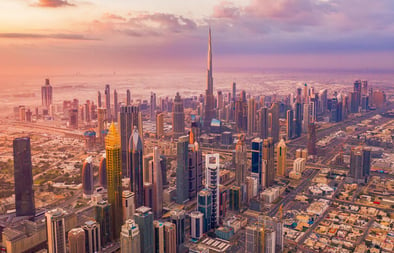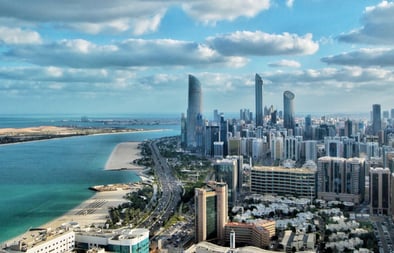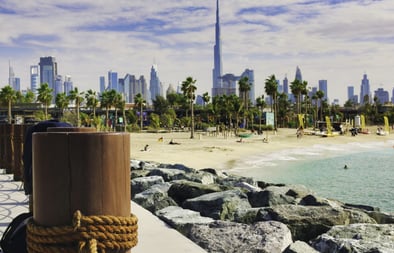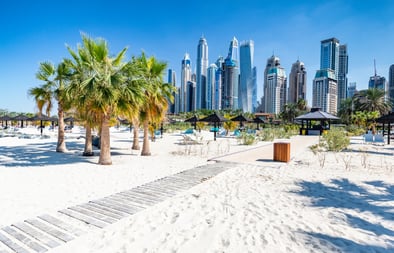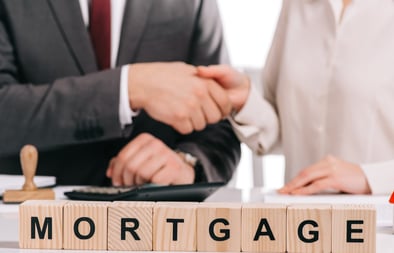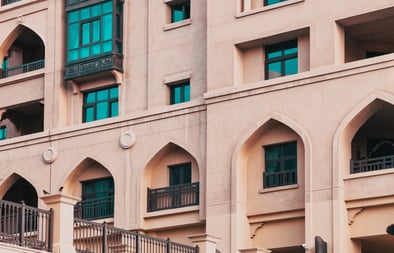
Dubai stands as a global hub of modernity, cultural diversity, and a lifestyle that blends luxury with convenience. Its iconic skyline dotted with skyscrapers symbolizes its ambition and progress, drawing people from all corners of the world to call it home. As a tenant in this vibrant metropolis, one enters into a dynamic rental landscape that reflects the city's cosmopolitan nature. To truly appreciate and make the most of one's living experience in Dubai, it's imperative to delve into the intricacies of the rental market, understanding not just the physical spaces but also the legal and practical aspects that shape the tenant-landlord relationship.
Rental contracts in Dubai are more than just agreements on paper; they are pathways to ensuring a harmonious coexistence between tenants and property owners or management entities. These contracts, often spanning a year or more, outline not just the financial aspects like rent amounts and payment schedules, but also delineate responsibilities regarding property maintenance, repairs, and adherence to community rules. By comprehensively understanding these contracts, tenants gain clarity on their rights and obligations, fostering a sense of security and stability during their tenancy.
Moreover, Dubai's rental market offers a wide array of options, from luxurious apartments in bustling urban centers to spacious villas nestled in serene communities. Each type of property comes with its own set of amenities, facilities, and neighborhood dynamics, catering to diverse lifestyles and preferences. Factors like proximity to schools, workplaces, shopping districts, recreational facilities, and public transport hubs play a pivotal role in shaping a tenant's choice of residence, highlighting the importance of thorough research and informed decision-making.
Beyond the physical aspects, tenants in Dubai must also navigate financial considerations such as security deposits, utility bills, and any additional fees or charges associated with their rental agreement. Understanding these financial aspects ensures transparency and helps tenants budget effectively throughout their tenancy, avoiding any surprises or misunderstandings.
Furthermore, tenants' rights and responsibilities are enshrined within the legal framework established by entities like the Dubai Real Estate Regulatory Agency (RERA) and the Tenancy Law. These regulations outline fundamental rights such as a habitable living environment, privacy, and timely maintenance, empowering tenants to advocate for their well-being and living standards. Conversely, tenants are expected to fulfill their obligations by paying rent on time, maintaining the property in good condition, and abiding by community guidelines and regulations.
In essence, being a tenant in Dubai transcends mere occupancy; it entails embracing a lifestyle enriched by cultural diversity, modern amenities, and a forward-thinking environment. By understanding the nuances of the rental landscape, tenants not only navigate the practicalities of their living arrangements but also contribute to fostering a harmonious and thriving community within this dynamic metropolis.
Understanding the Rental Market
Dubai's rental market boasts a rich diversity of properties, presenting tenants with a plethora of options to match their unique preferences and requirements. Whether you're drawn to the vibrant energy of city living or seek the tranquility of suburban neighborhoods, Dubai's real estate landscape has something for everyone.
Apartments stand out as a popular choice among tenants, especially those who relish the convenience of urban living. These units often come with modern amenities such as gyms, swimming pools, and concierge services, offering a comfortable and contemporary lifestyle. Apartments range from cozy studios to spacious penthouses, catering to individuals, couples, and families alike.
On the other hand, villas and townhouses are prized for their spacious layouts, private gardens, and family-friendly environments. These properties are often located in gated communities or master-planned developments, providing residents with a sense of security and community. Villas and townhouses come in various sizes and designs, accommodating different family sizes and lifestyle preferences.
Serviced residences present a unique blend of home comfort and hotel-style services, making them an attractive option for tenants seeking a hassle-free living experience. These properties are fully furnished and equipped with amenities like housekeeping, 24-hour concierge, and maintenance services. Serviced apartments offer the flexibility of short-term leases, making them ideal for expatriates, business travelers, and individuals looking for temporary accommodation.
Choosing the Right Property
The first step for tenants is to identify their needs and priorities when selecting a rental property. Factors to consider include location, size, budget, amenities, and proximity to schools, workplaces, shopping centers, and recreational facilities. Researching different neighborhoods and property types can help tenants make informed decisions that align with their preferences and lifestyle requirements.
Navigating Rental Contracts
When tenants in Dubai find a property that suits their needs, they proceed to sign a rental contract with either the landlord or the property management company. This contractual agreement is a crucial step that establishes the legal framework of the tenancy, defining the rights and responsibilities of both parties involved.
It's paramount for tenants to meticulously review the terms and conditions outlined in the rental contract before affixing their signature. Several key elements require careful consideration during this process:
The tenancy duration should be clearly understood, whether it's a fixed-term lease or a periodic tenancy, and should align with the tenant's plans and requirements. Next, tenants must clarify the rent amount, the currency it's quoted in, and the agreed-upon payment schedule, including any penalties for late payments.
Understanding Rent and Fees
In Dubai's rental landscape, tenants are often required to make advance rent payments, which can vary from annual to bi-annual payments. However, certain landlords may offer more flexible monthly payment plans. Besides rent, tenants should also factor in additional expenses like security deposits, potential agency fees, maintenance costs, and utilities. Having a clear understanding of these financial responsibilities upfront allows tenants to manage their finances efficiently and avoid unexpected financial burdens during their tenancy.
Knowing Your Rights and Responsibilities
As a tenant renting a property in Dubai, it's essential to have a comprehensive understanding of your rights and responsibilities as stipulated by the Dubai Real Estate Regulatory Agency (RERA) and the Tenancy Law. Under these regulations, tenants have certain entitlements, including the right to reside in a habitable property that meets basic living standards, ensuring privacy within their rented space, and receiving timely maintenance and repairs as necessary to maintain the property's livability.
Conversely, tenants also bear responsibilities in the rental agreement. These include fulfilling financial obligations by paying rent promptly as per the agreed terms, actively maintaining the property to preserve its condition and value, and adhering to community guidelines and regulations set forth by the landlord or property management. Understanding and abiding by these rights and responsibilities fosters a harmonious and mutually beneficial landlord-tenant relationship, ensuring a smooth and enjoyable rental experience in Dubai.
Dealing with Maintenance and Repairs
In the context of rental agreements in Dubai, landlords generally take on the responsibility of addressing major repairs and overall property upkeep. This includes tasks such as structural repairs, plumbing or electrical issues, and any other significant maintenance needs that may arise. On the other hand, tenants are expected to promptly report any maintenance issues they encounter and to maintain the property in a reasonable manner throughout their tenancy.
Effective communication between tenants and landlords or property managers is crucial in this regard. Tenants should proactively communicate with their landlords or property management teams regarding any maintenance concerns or repair needs. This open dialogue ensures that issues are addressed in a timely manner, preventing them from escalating into more significant problems. It also contributes to fostering a comfortable and well-maintained living environment for tenants, enhancing their overall rental experience.
Understanding Lease Renewals and Terminations
Lease renewals and terminations are routine procedures in the rental process, requiring tenants to understand the notice periods and protocols stipulated in their rental agreements and governed by relevant laws. Maintaining open communication with landlords is crucial, as it helps facilitate smooth transitions during lease renewals or when moving out of the property. Being aware of the specific procedures and timelines for lease renewals or terminations ensures that tenants can navigate these aspects of their tenancy effectively and in accordance with legal requirements.
Resolving Disputes
In the case of conflicts or disagreements between tenants and landlords, it's crucial to strive for amicable resolutions through open communication and negotiation. If direct resolution is not feasible, tenants can seek guidance from Dubai's Real Estate Regulatory Agency (RERA) or legal experts specializing in real estate matters. These professionals offer valuable insights and assistance in mediation or legal procedures to address disputes effectively, ensuring fair outcomes and maintaining a harmonious landlord-tenant relationship.
Final Thoughts
Renting a property in Dubai provides residents with access to the city's bustling lifestyle and wide-ranging amenities. It involves gaining insights into the rental market's intricacies, selecting a suitable property, comprehending rental agreements, and being aware of one's rights and duties as a tenant. This includes managing maintenance requests efficiently and staying informed about lease-related procedures. By mastering these aspects, tenants can ensure a fulfilling and smooth living experience in Dubai, immersing themselves in the vibrant culture and opportunities the city has to offer.
Conclusion:
Dubai's property rental landscape presents a wealth of opportunities for tenants to find their ideal home and embrace all that the city has to offer. With the right knowledge, preparation, and proactive approach, tenants can navigate the rental journey with confidence and make the most of their time in this dynamic and thriving metropolis.




























